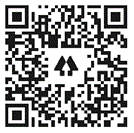“What IF we could have our own curriculum”
In this entry Vikki Wynn, explains how the team at Inspiring Foundations, a UK nursery school federation, developed their own curriculum through practitioner enquiry.
Twitter: @VikkiWynn1
The team at Inspiring Foundations recognised a change to the provision was needed following the pandemic, ensuring every child would have the opportunity to flourish. The underpinning ethos of the Federation which has taken elements from many philosophies of education to create its own and unique pedagogical values and principles, could not and would not condone a ‘catch up’ curriculum and the whole staff team looked to the leadership team to develop an approach not only to empower them (Peleman et al, 2017) but to further develop the provision to support all children and their families. While this would be a challenge, trying to understand the development needs of the staff team along with identifying what the change could be, the complexity was embraced, and the journey began.
While the EYFS (DfE, 2021) provides many of the concepts that the setting are advocates of, providing a solid foundation, the team felt there is a limitation of having only seven ‘lens’. While the EYFS is consistently implemented, there was an intrinsic drive from the team to move beyond this and to explore possibilities that are not evident within the framework, exploring a range of approaches, not necessarily solely educational (Kirova et al, 2020). An initial consideration was to think about international approaches that have a different focus and / or strategies to implement their framework. In the summer of 2022, the leadership team attended the Reggio Emilia study week which proved to be invaluable in having the opportunity to explore this approach but also to have time to engage in reflective dialogue with one another but also with fellow early years delegates.
The trip led to a recognition that throughout the federation, there is a well-established ethos of research informed practice, acknowledging the contribution of all and opposing perspectives. This pragmatist approach ensures that the postmodernist theories explored are understood by all and reflected upon. Such seminal theories provide an understanding of what needs to happen, serving as a reminder to value ‘the process itself’ (Vygotsky, 1896-1934) and have the confidence through an interpretivist framework to explore the possibilities available to enact change. This aligned with the core principles in Reggio Emilia too and led the team to think more about what could be possible… such as having our very own curriculum. We wondered “why can’t we do this?”.
Through action research (Lewin, 1946) we were able to encourage the involvement of the whole team and demonstrate what is possible through practitioner enquiry. The team immediately recognised that there was also a need for reflexivity throughout, following observations of the children, ongoing surveys for the wider team and regular anecdote circles with the leadership team. This would reduce the danger of ‘island mentality’ with limited alternative perspectives (Gray, 2022). The training in Reggio Emilia helped to open further dialogue (Edwards et al, 2012) along with the involvement of a Governor as a critical friend. The settings continue to adhere to the statutory requirements of the EYFS (DfE, 2021) forming the core foundational elements of the provision with any developments being implemented as enhancements.
The study is ongoing, but we have recognised that the investment of time in having open dialogues to allow for reflection on practice together, rather than operating in silos is significant. The need for ongoing CPD (continuous professional development), along with a change to how CPD opportunities are perceived by the team (giving priority to reflection as a team alongside specific ‘training days’) was also essential to having a shared understanding of what was and is being developed. Through previous work with external academics, we have observed that the continuous reminders and ongoing conversations over time lead to more effective long-term changes. We need to have a continuous ‘drip, drip’ approach to CPD. The impact of the research conducted has been the development of a curriculum, specific and unique to Inspiring Foundations that is developed by and with the whole team. This has been implemented from September 2022 and we continue to monitor this to understand the impact upon the provision but also for the team. The team are incredibly proud of what has been developed and to see that their initial wonderings have led to something tangible that can and will make a difference to the children and families within the community. Our aim is to share our journey through the research and instill confidence in others to engage in action research themselves that leads to positive change within their own class and school.
Vikki Wynn - Senior Lecturer at the University of Sunderland
Sarah Dixon-Jones - Executive Head Teacher at Inspiring Foundations
Find out more about our unique approach at inspiring_foundations on Instagram or scan the QR code to view our Inspiring Foundations link tree and find out more about us.



